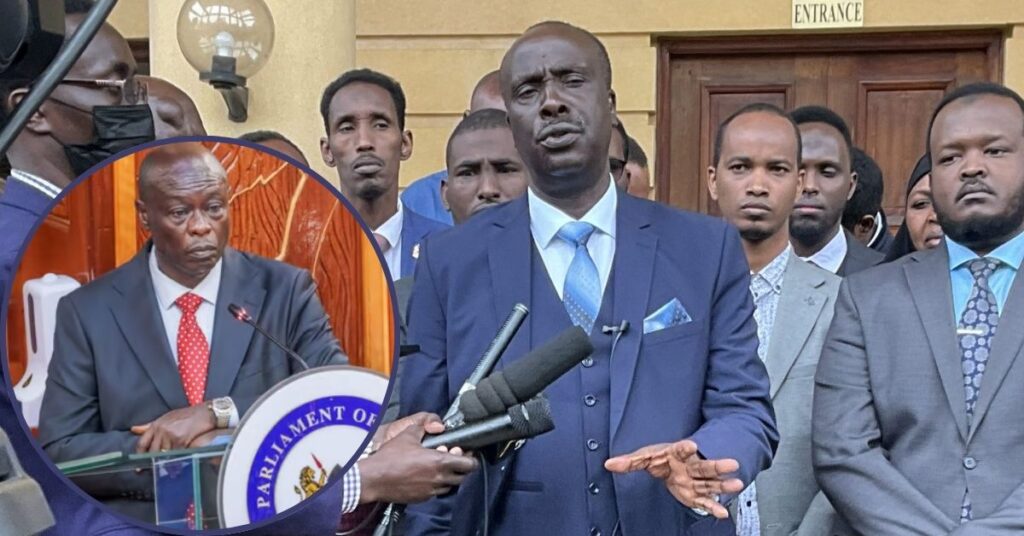Lawyer Danstan Omari Claims Gachagua’s Case Will Take 3 Years
Lawyer Danstan Omari has projected that the impeachment case against Deputy President Rigathi Gachagua could extend for up to three years before reaching a final verdict.
Speaking to journalists outside the Milimani Law Courts on Tuesday, October 22, Omari expressed doubts about the court’s handling of the case, suggesting that the matter would ultimately be settled by the Supreme Court.
Omari raised serious concerns about the credibility of the judiciary, particularly given the constitutional issues at play in Gachagua’s case. “Did you see the deputy president in court? Remember, the removal of the deputy president is being pushed on the grounds of violating the constitution. Now, the court itself has violated the constitution. So what authority does that court have to remove him?” Omari questioned.
The lawyer emphasized that the case would not conclude in the High Court but would proceed to the Court of Appeal before finally reaching the Supreme Court for a definitive ruling. “We are saying that this case will end up at the Court of Appeal, and from there, the final ruling on Gachagua will be made by the Supreme Court. So Kenyans, expect this case to drag on for about three years before it is concluded,” Omari remarked.

In addition to concerns about the length of the proceedings, Omari criticized the court’s conduct, accusing the judges of violating Gachagua’s legal rights. He pointed out that a key hearing was held in the absence of Gachagua’s defense team, a decision Omari described as unconstitutional.
“The judges sat on a Saturday, without Gachagua’s lawyers, ignoring the constitutional right to worship, and made a decision on their own with the Attorney General, the Solicitor General, and the government,” he revealed.
He also called into question the judges’ integrity, stating, “As Gachagua’s defense team, we have no confidence in those three judges, how they were appointed, and how they’ve handled this matter.”
In a significant development, Omari disclosed that President William Ruto would be required to testify in court after filing an affidavit in the case.
Omari questioned whether the president fully grasped the legal implications of such a move, saying, “I’m not sure if his lawyers explained to him the implications of the president swearing an affidavit in such a case.”
In Other News: Gov’t Faces Setback In Legal War Against Activist Morara Kebaso Project Exposes
Lawyer Danstan Omari Claims Gachagua’s Case Will Take 3 Years

